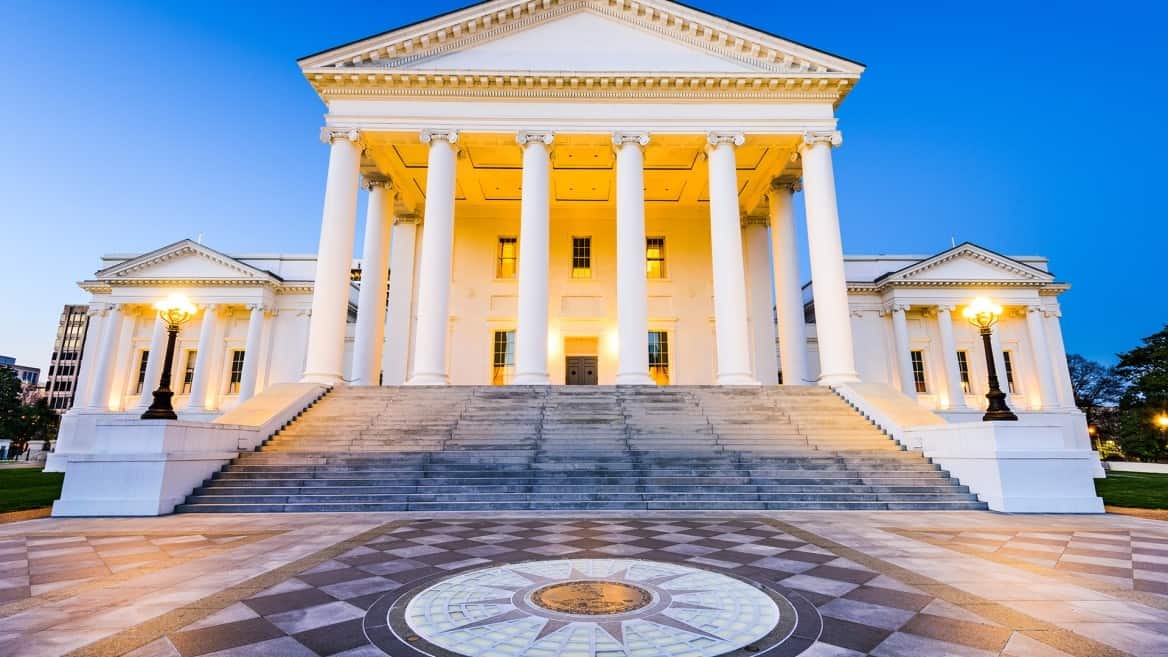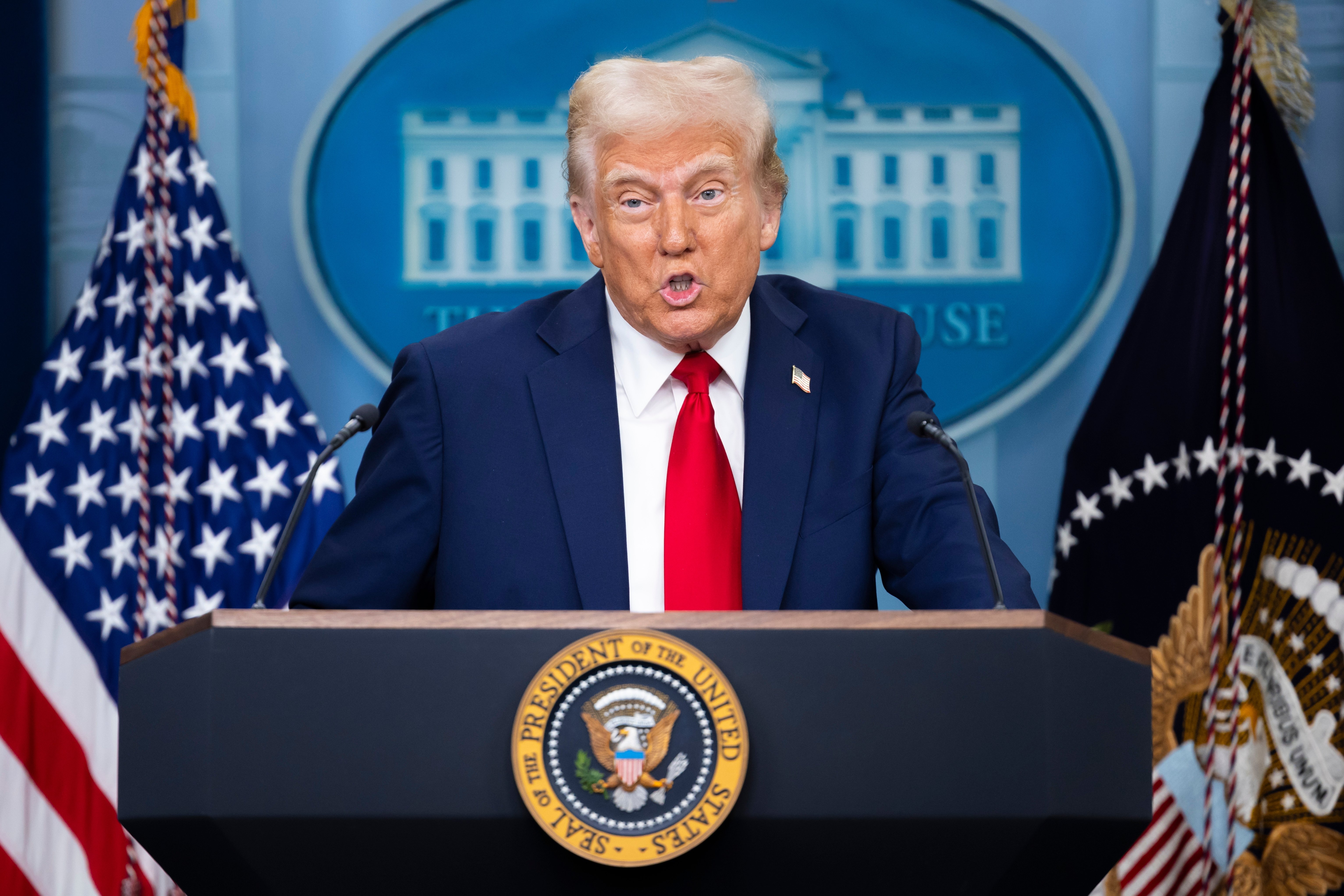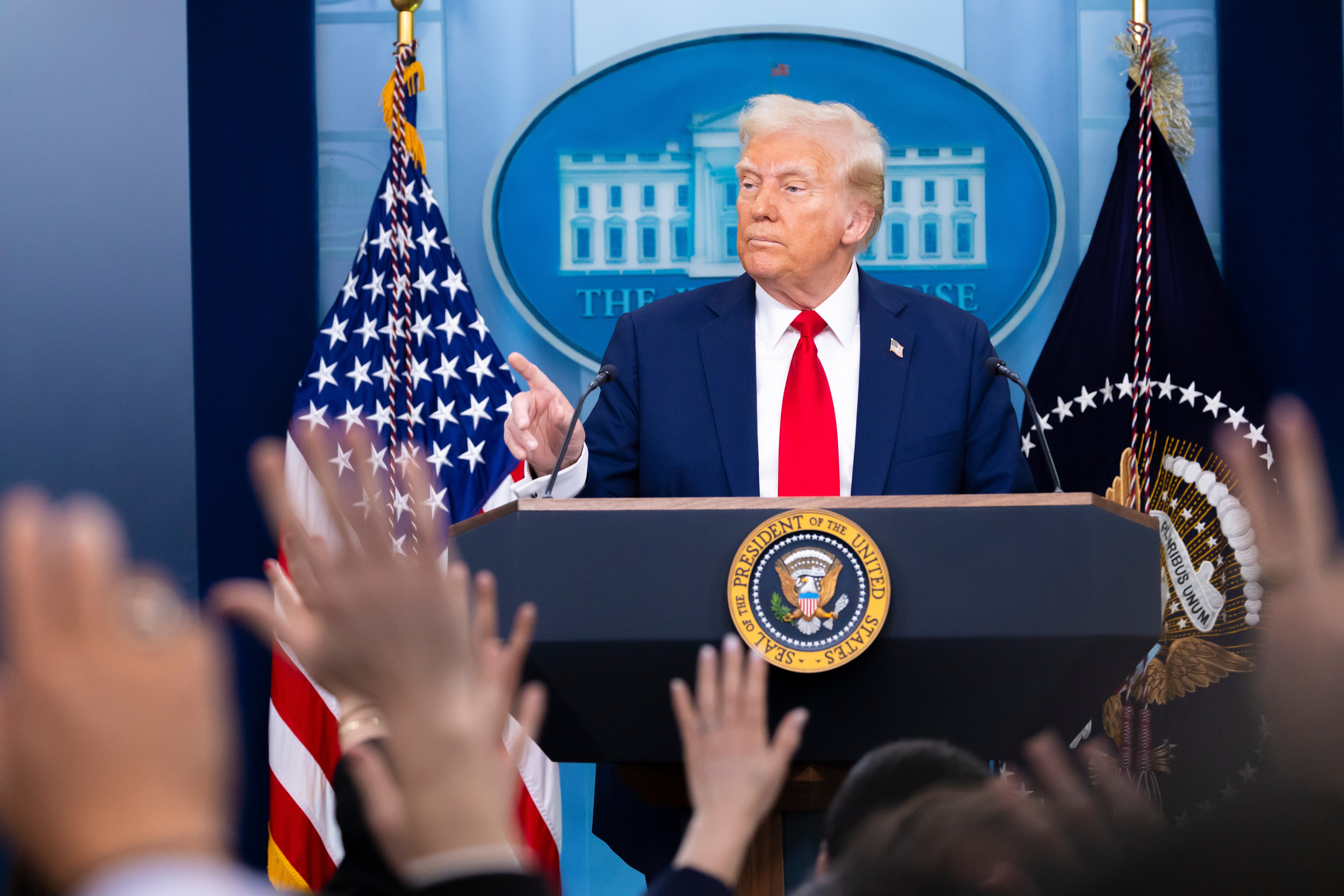Written by Ethan Mort
Virginia Democrats received a major setback in 2021 when Glenn Youngkin defeated Terry McAuliffe in that year's most expensive election and Republicans also won back control of the House of Delegates. Virginia’s State Senate and House of Delegates were up for election two weeks ago, which resulted in historic spending levels across the state’s general elections. This was in part driven by the Republicans seeking to win a trifecta by flipping the State Senate. In turn, Democrats campaigned heavily on reproductive rights, accusing Virginia Republicans of having a plan to ban abortions should they gain full power in the state. In the first coordinated attempt by Republicans to play on the defensive on the issue, several Republican candidates released ads rejecting a flat-out ban on abortion, instead opting for a “common sense” 15-week limit with exceptions for rape and incest. Overall, 40% of all Virginia State Legislature general election ads mentioned abortion. With control of the state government on the line, a record-breaking $65M was spent across Virginia’s state legislature general elections this year, 131% higher than 2019’s total.
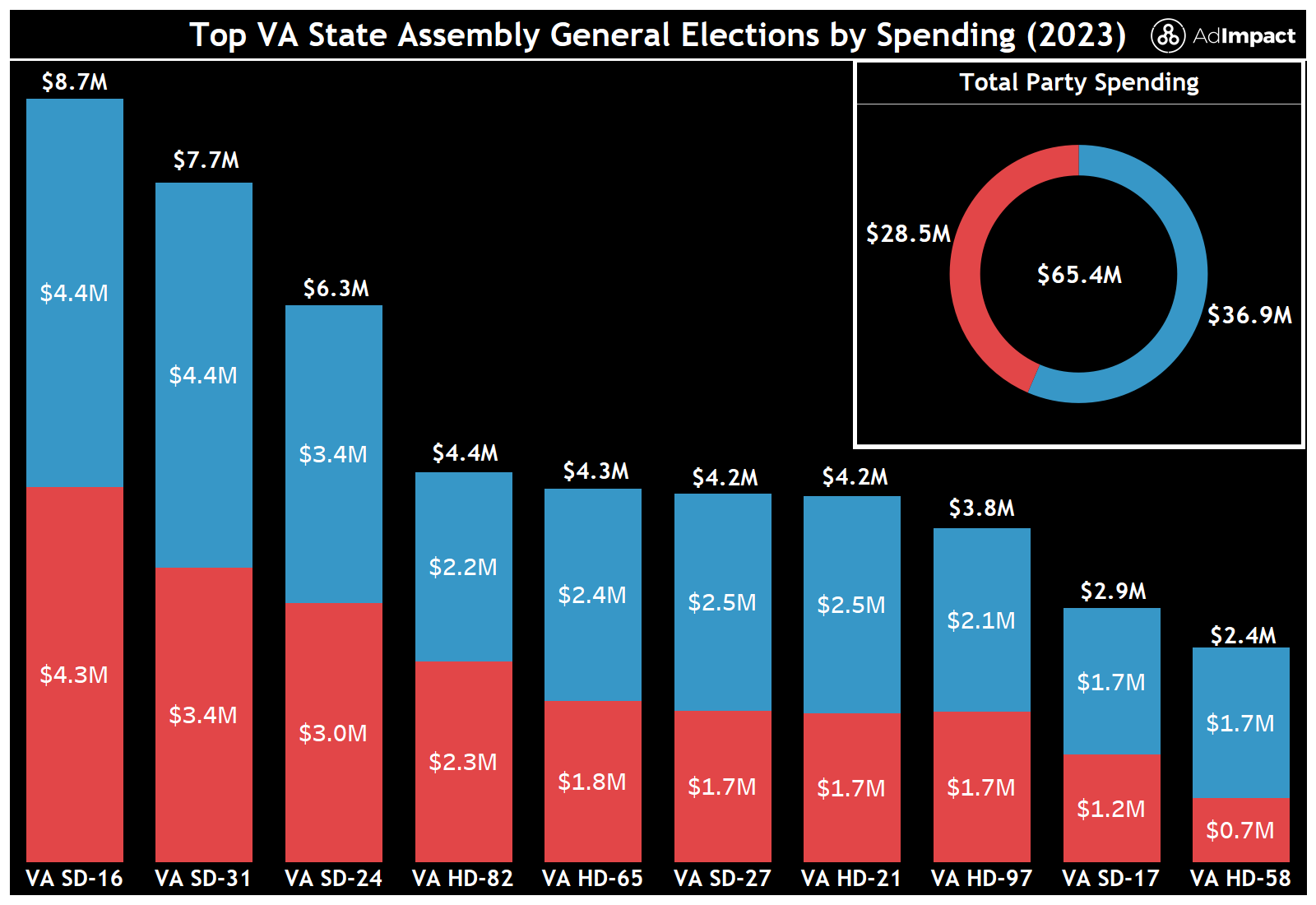
Following the primaries in June, Republicans began the general elections with a slight spending advantage over the Democrats. Democrats’ spending began to ramp up in the middle of September. After three months of a small spending gap between the parties, Democrats gained a clear spending advantage over the Republicans from October onwards. Republicans kept the spending gap narrower in the State Senate, the chamber the party needed to flip to gain their trifecta. Meanwhile, Democrats invested nearly equal amounts in both chambers, $18.6M in the House of Delegates and $18.1M in the State Senate.
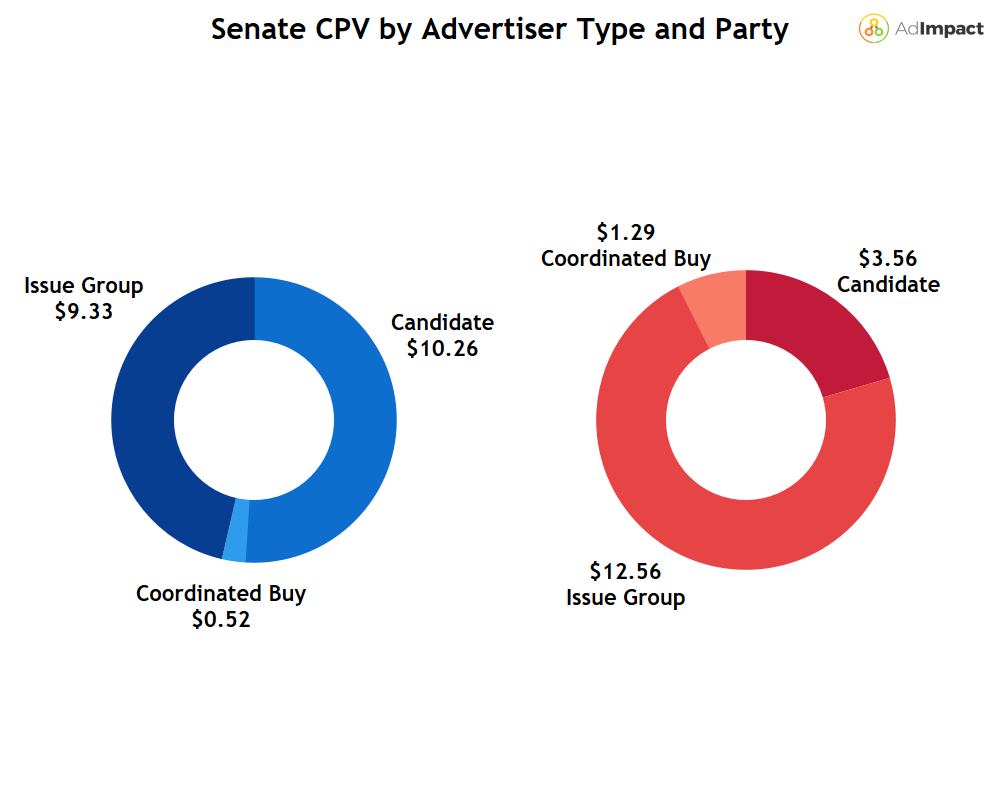
Abortion was mentioned in 40% of all Virginia State Legislature general election ads, making it the most mentioned issue across the elections. The issue was in 58% of all Democratic ads, and 8% of all Republican ads. Notably, Republican advertisers tried going on the defensive on the issue as their opponents alleged Republicans were going to completely ban abortion. Spirit of Virginia, a Youngkin-affiliated group, aired this ad stating that those accusations were false and that Virginia Republicans support a “reasonable 15-week limit” with exceptions for rape and incest. Abortion played a large role in Democrats’ Facebook advertising campaigns. Susanna Gibson released six different abortion ads proposing the choice between voting for her to defend reproductive rights or voting for her Republican opponent who wanted to ban abortion. Republicans also took to Facebook to defend themselves from accusations of wanting to ban abortion. Karen Greenhalgh's Facebook ad described her experience working in the medical field and proclaiming her goal was to “support women and find consensus on this issue” while vowing support for the 15-week limit with exceptions.
State Senate
Democrats maintained control of the State Senate but lost one seat, with Republicans winning in three out of four State Senate districts Biden won in 2020. Overall, $34M was spent across the State Senate generals, with Democrats spending $18.2M to Republicans’ $15.8M. An overwhelming majority of this spending was palced by the candidates themselves, with the highest-spending candidate being Democrat Schuyler Van Valkenburg ($4.3M). At $8.7M spent, the 16th district was the most expensive State Senate general election in Virginia this year, followed by the 31st district ($7.7M), and the 24th ($6.3M).
Virginia’s 16th saw Democratic State Delegate VanValkenburg defeat the Republican State Senator from the 12th district, Siobhan Dunnavant. The general election saw $8.7M, with Democratic advertisers outspending Republicans by $120K. Abortion played a large role in the district’s ads. Dunnavant leaned into her experience as an OB/GYN to characterize her softer stance on abortion compared to her party’s. She released ads vowing Democrats’ accusations that she wants to fully ban abortions are false, and also released ads alleging VanValkenburg supported no limitations on abortion. Dunnavant tried to campaign as a bipartisan senator, releasing an ad featuring a “Democrat for Siobhan”, and painted VanValkenburg as a socialist. Additionally, Youngkin waded into this election, recording a lighthearted ad with Dunnavant. VanValkenburg released ads painting Dunnavant as an extremist, one ad claimed her law banned classic books, and another ad attacked Dunnavant’s stance on abortion. Overall, VanValkenburg released five different ads painting Dunavant as an extremist on abortion. Outside of abortion, VanValkenburg released ads about education, promising to fund public education and keep guns out of schools.
The 31st Senate election pitted two political newcomers against one another: Democrat Russett Perry, and Republican Juan Pablo Segura. Perry emerged victorious. Overall, $7.7M was spent on the election, with Democratic advertisers outspending Republicans by $1M. In her ads, Perry lumped Segura in with other Republicans, releasing an ad accusing Segura of being a hardliner on abortion. Additionally, Perry released ads highlighting her background as a Loudon County prosecutor and officer at the CIA. With her law background, Perry aired several ads about crime, highlighting the murderers she got convicted, and sexual offenders that she got convicted. Perry talked more about crime in her television ads than other Virginia Democrat. Fifty-four percent of her television ads were about crime, compared to just 17% for other Virginia Democrats. Segura tried to flip Perry’s crime record against her. He released an ad accusing her of being backed by “several Defund the Police groups” and that she let violent criminals walk free. Outside of attacking Perry on crime, Segura also released an ad about abortion, in which his wife shared her story of a miscarriage, highlighting that it was a “personal decision” and that Segura supports maternal healthcare.
House of Delegates
Republicans hoped to maintain and potentially expand their newly gained House majority; however, they ended up losing control of the chamber. In total, $31.2M was spent across Virginia’s House of Delegates general elections. Again, Democratic advertisers outspent Republican advertisers, $18.6M to $12.6M.
At $4.4M spent, District 82 was the most expensive House of Delegates general election this year. Republicans outspent Democrats by $140K. Republican Delegate Kim Taylor defeated Democrat Kimberly Adams. Like Segura, Taylor labeled abortion a “personal issue” in her ads while also accusing Adams of being an extremist on the issue by allowing abortion up until birth. Taylor focused on economic issues, as she released ads that promised “more money in your wallet”, accused Adams of wanting to raise taxes, and promised to expand broadband access. She also brought the unpopular incumbent President, Joe Biden, into the election by releasing an ad alleging “Bidenomics is failing” and another ad claiming Biden’s America is lawless and dangerous. In her last ad in the election, Adams described herself as a “proud gun-owner” while building up her local credit by describing her life in the district. Adams also released an ad describing her Republican opponent as an extremist when it comes to abortion and vowed to protect reproductive rights. Another line of attack Adams used against Taylor was corruption, releasing an ad that alleged Taylor lowered taxes to benefit her business and took $200K in PPP loans she never returned.
At $4.3M spent, the 65th district was the second most expensive House of Delegates general this year. Democrats outspent Republicans by $550K. This election saw former Democratic delegate, Joshua Cole, return to the House of Delegates by defeating law officer Lee Peters. Peters attacked Cole on crime across various ads, with one ad alleging he supported Defund the Police and another ad alleging Peters voted for the early release of violent offenders. Cole went on the defensive against these attacks and aired an ad that compiled his endorsements from various law enforcement officials in the district. Additionally, Cole released various attacks attacking Peters as a “MAGA Republican” who sought to ban abortion. Peters tried to counter these attacks and released an ad that featured a pro-choice Democrat endorsing Peters and how the accusations of Peters wanting to ban abortion were “false”.
Virginia's State Legislature elections followed the trend we’ve tracked post-Dobbs decision of abortion increasingly appearing in political ads and becoming a central theme of many Democratic advertisers’ ad-buying strategies. Earlier in the year, chair of the Republican National Committee, Ronna McDaniels said Republicans can’t “just talk about the economy and ignore this big issue [abortion]” and she made the same point again last week. Virginia Republicans tried following her advice by releasing ads claiming Democrats’ ads about them wanting to ban abortion were false, and that they think abortion is a “personal” choice and/or offer their support of the 15-week limits with exceptions. This year’s Virginia legislative elections marked the first major attempt by Republicans at holding back the Democrats’ numerous ads on abortion. It will remain to be seen if Congressional Republicans, especially those in toss-up elections, will try to mimic the strategy Virginia Republicans employed this year.
For more 2023 election analysis, check out our Kentucky gubernatorial blog here.

